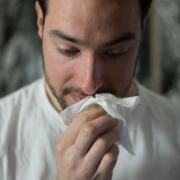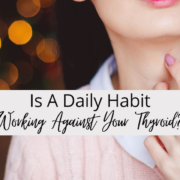Is Your Age Really Your Age?
. Is your age really your age? It’s harder to see it in yourself, so think about your friends. There are likely some that look or act older than they are. And some that seem younger than their birthdate would indicate. Is it their face that doesn’t match that number, or is it their energy, and actions?
Perhaps it is actually their biological age, which measures the health of their cells and DNA instead. If you’ve been tuned into health, it’s not a great leap to say your biological age matters more than your chronological one. But what is biological age and why is it important?
Chronological Age Matters Less Than Biological Age
Your chronological (or calendar) age is the one you have known all your life. Three 48-year-old women might share a chronological age – even a birthday – yet health and vitality would likely differ amongst all three, perhaps even significantly.
It is a fact of life that our bodies begin to function less efficiently as we age, slowly collecting damage from both internal and external causes. Many of these causes are avoidable.
While one of these women mentioned above might have the average physiology of most people at the same stage of life, another’s body might be damaged enough to resemble a 53-year-old’s. Likewise, the third might have a lifestyle that gives her the body of an average 40-year-old.
Vanity aside, why does this matter? Because the World Health Organization reports that people spend an average of the last 20% of their lives managing chronic illness. By 65 years, 80% of our population are dealing with at least one chronic illness, such as diabetes, hypertension, heart conditions, cancer or dementia. Sadly, a majority has at least two chronic conditions.
The younger your body functions, the less likely you are to be part of these statistics. This is regardless of your chronological age. And the good news … biological age can go backward. With the right approach, your physiology can become younger. Really!
What Does Biological Age Involve?
Factors that decrease biological age include good gut bacteria, appropriate exercise, 7-9 hours of sleep, mindfulness practice, a balanced diet, and cuddling or physical touch.
Factors that increase it include high blood sugar, environmental toxins, poor gut bacteria, insufficient or excess exercise, and high levels of stress.
What all these factors affect, either positively or negatively, is a biological process called DNA methylation which essentially decides what genes get turned on and what genes get turned off. Growing genetic research has clearly demonstrated that our genes don’t define our outcome in a fixed manner. We have some control over them through our daily choices related to food and lifestyle.
Put Yourself To The Test
Are you curious? You can take a simple test to estimate your biological age. Start by reaching out to me and requesting the test. Once armed with that information, you can explore steps to decrease your biological age and improve your later years. I can help. Even if you are already experiencing chronic illness, you have the power to change your future.









